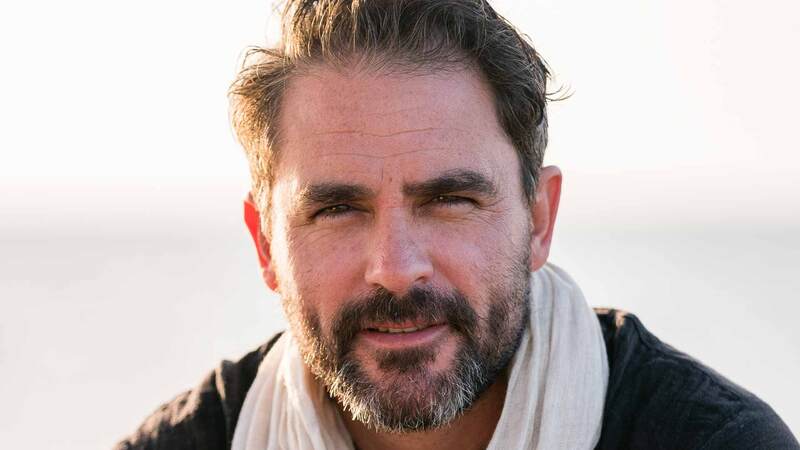You are viewing your 1 free article this month. Login to read more articles.
State of Wonder: Extract
The news of Anders Eckman’s death came by way of Aerogram, a piece of bright blue airmail paper that served as both the stationery and, when folded over and sealed along the edges, the envelope. Who even knew they still made such things? This single sheet had traveled from Brazil to Minnesota to mark the passing of a man, a breath of tissue so insubstantial that only the stamp seemed to anchor it to this world. Mr. Fox had the letter in his hand when he came to the lab to tell Marina the news. When she saw him there at the door she smiled at him and in the light of that smile he faltered. “What?” she said finally.
He opened his mouth and then closed it. When he tried again all he could say was, “It’s snowing.”
“I heard on the radio it was going to.” The window in the lab where she worked faced out into the hall and so she never saw the weather until lunchtime. She waited for a minute for Mr. Fox to say what he had come to say. She didn’t think he had come all the way from his
office in the snow, a good ten buildings away, to give her a weather report, but he only stood there in the frame of the open door, unable either to enter the room or step out of it. “Are you all right?”
“Eckman’s dead,” he managed to say before his voice broke, and then with no more explanation he gave her the letter to show just how little about this awful fact he knew.
There were more than thirty buildings on the Vogel campus, labs and office buildings of various sizes and functions. There were labs with stations for twenty technicians and scientists to work at the same time. Others had walls and walls of mice or monkeys or dogs. This particular lab Marina had shared for seven years with Dr. Eckman. It was small enough that all Mr. Fox had to do was reach a hand towards her, and when he did she took the letter from him and sat down slowly in the gray plastic chair beside the separator.
At that moment she understood why people say You might want to sit down. There was inside of her a very modest physical collapse, not a faint but a sort of folding, as if she were an extension ruler and her ankles and knees and hips were all being brought together at closer angles. Anders Eckman, tall in his white lab coat, his hair a thick graying blond. Anders bringing her a cup of coffee because he’d picked one up for himself. Anders giving her the files she’d asked for, half sitting down on the edge of her desk while he went over her data on proteins. Anders father of three. Anders not yet fifty. Her eyes went to the dates—March 15th on the letter, March 18th on the postmark, and today was April 1st. Not only was he dead, he was two weeks dead. They had accepted the fact that they wouldn’t hear from him often and now she realized he had been gone so long that at times he would slip from her mind for most of a day.
The obscurity of the Amazonian tributary where Dr. Swenson did her research had been repeatedly underscored to the folks back in Minne- sota (Tomorrow this letter will be handed over to a child floating downriver in a dugout log, Anders had written her. I cannot call it a canoe. There never were statistics written to cover the probability of its arrival.), but still, it was in a country, it was in the world. Surely someone down there had an Internet connec- tion. Had they never bothered to find it? “Wouldn’t she call you? There has to be some sort of global satellite—”
“She won’t use the phone, or she says it doesn’t work there.” As close as they were in this quiet room she could scarcely hear his voice. “But for this—” She stopped herself. He didn’t know. “Where is he now?” Marina asked. She could not bring herself to say his body. Anders was not a body. Vogel was full of doctors, doctors working, doctors in their offices drinking coffee. The cabinets and storage rooms and desk drawers were full of drugs, pills of every conceivable stripe. They were a pharmaceutical company; what they didn’t have they figured out how to make. Surely if they knew where he was they could find something to do for him, and with that thought her desire for the impossible eclipsed every piece of science she had ever known. The dead were dead were dead were dead and still Marina Singh did not have to shut her eyes to see Anders Eckman eating an egg salad sandwich in the employee cafeteria as he had done with great enthusiasm every day she had known him.
“Don’t you read the reports on cholesterol?” she would ask, always willing to play the straight man.
“I write the reports on cholesterol,” Anders said, running his finger around the edge of his plate.
Mr. Fox lifted his glasses, pressed his folded handkerchief against the corners of his eyes. “Read the letter,” he said. She did not read it aloud.
State of Wonder is published by Bloomsbury.















